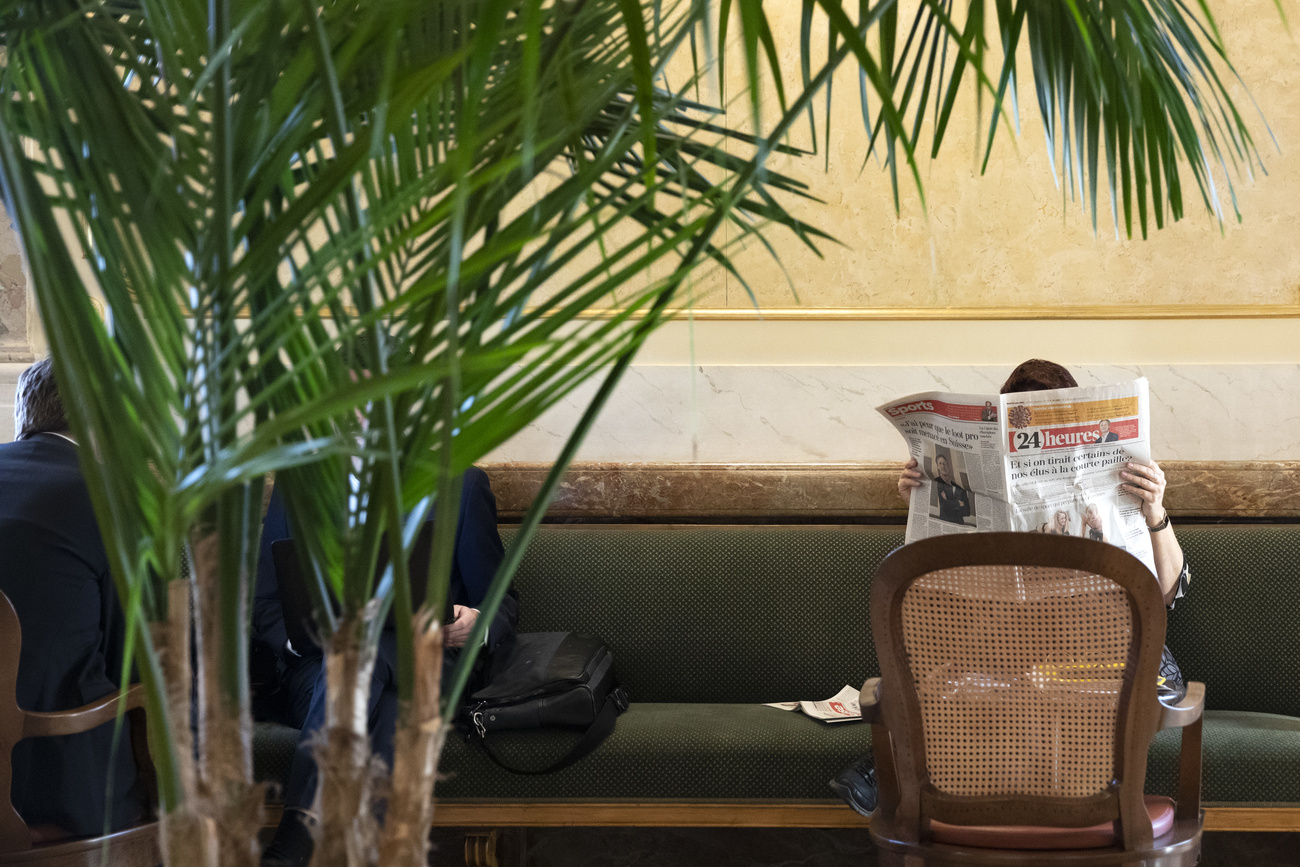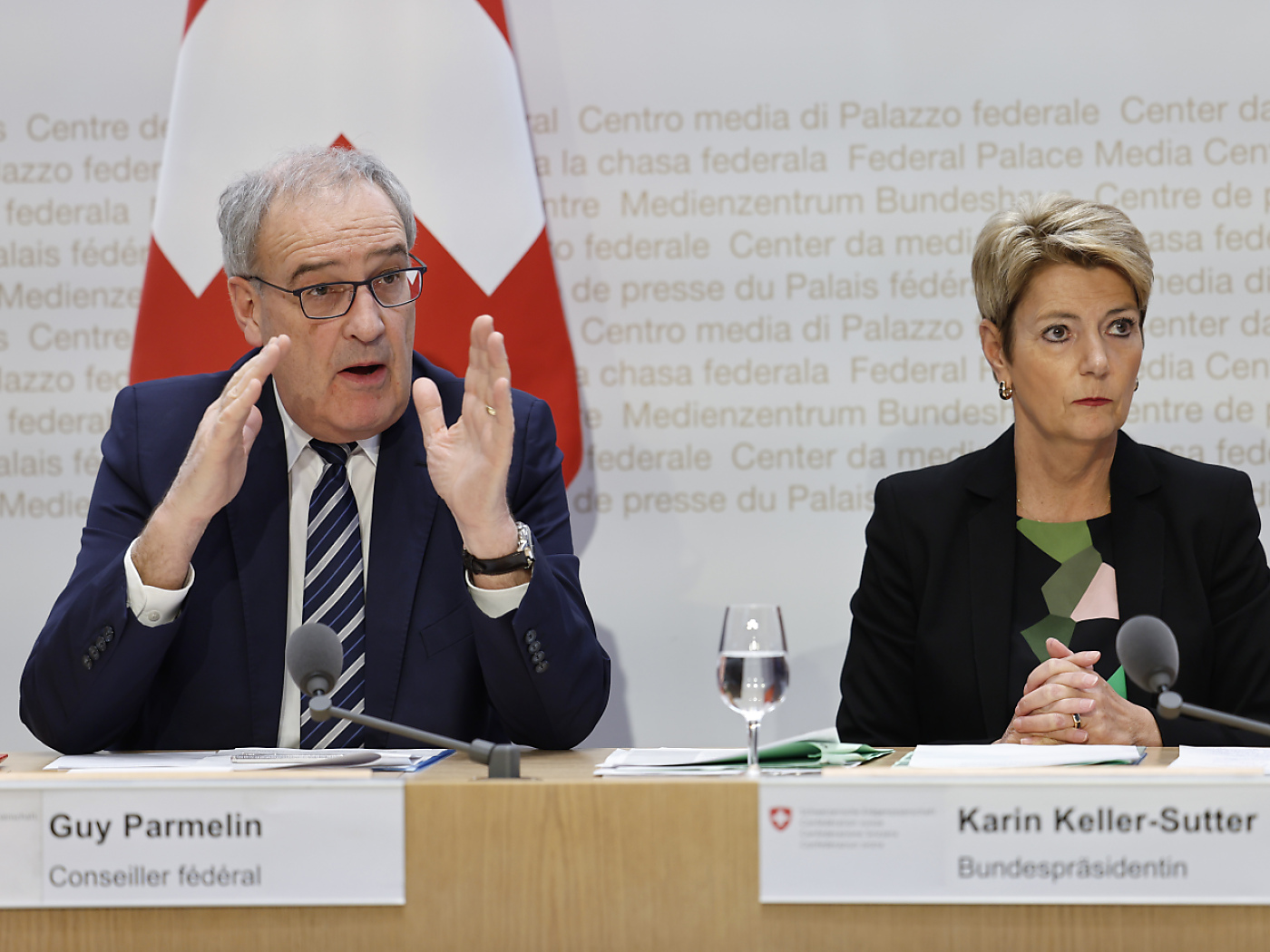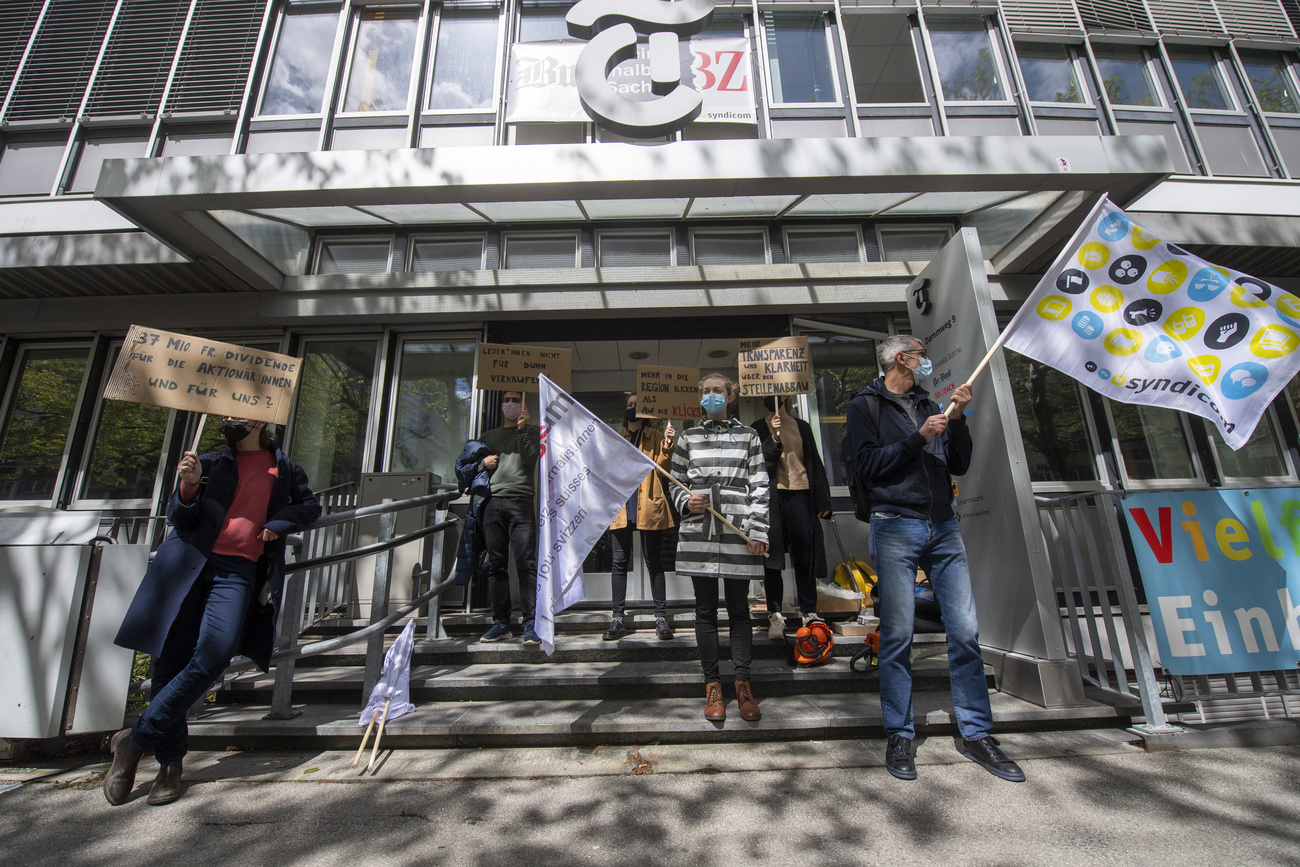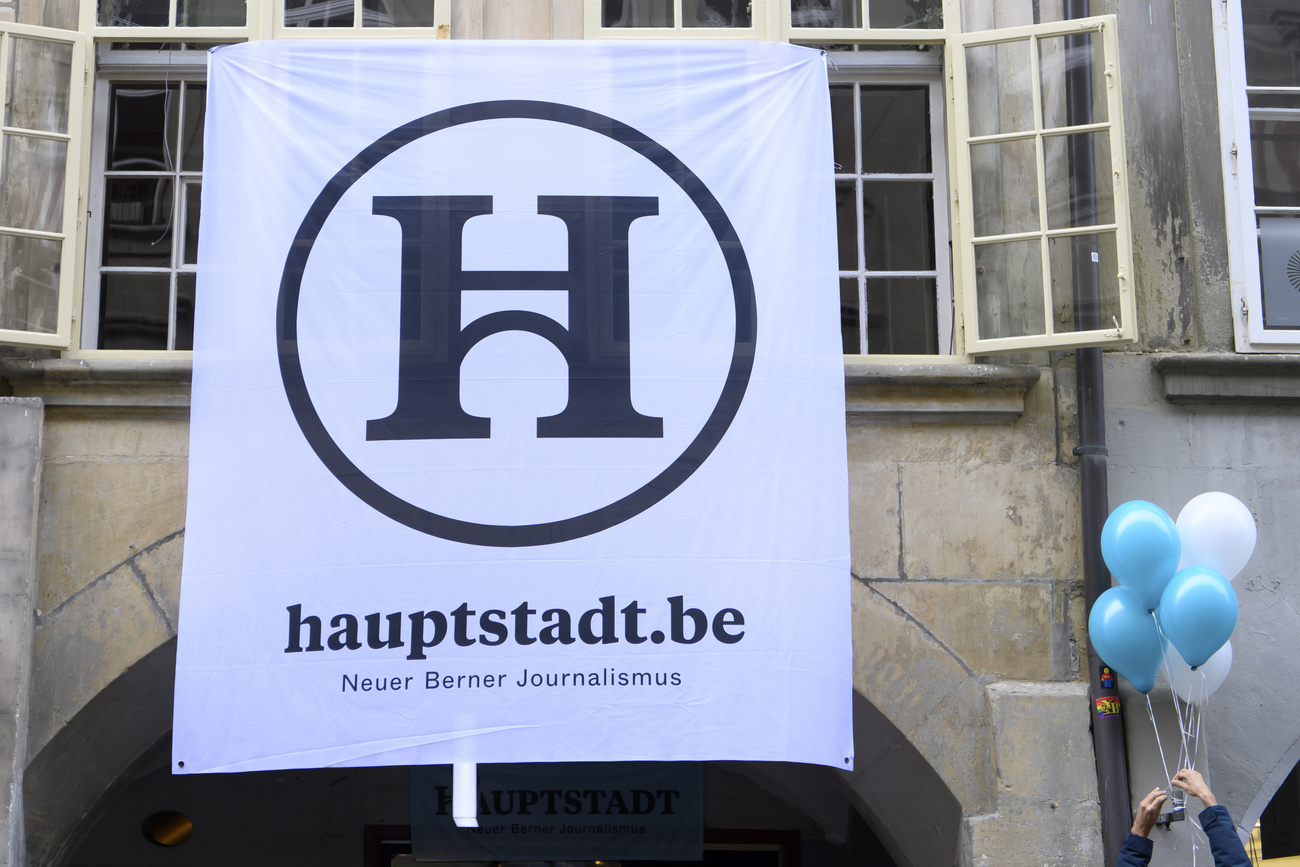State funding for Switzerland’s private media flops at ballot box

Voters have rejected a decision by parliament to increase public funding for Swiss media, primarily for print and online products.
Final results show the CHF151 million ($162 million) package winning only 45.6% of the vote on Sunday, falling short of a majority and defying recommendations for approval by the government.
Mainly voters in French-speaking Switzerland came out in favour of the reform.
Political scientist Urs Bieri of the leading GfS Bern research institute said that faced with conflicting views not only from the political parties but also from the media industry voters chose to side with the centre-right.
Opinion polls published ten days ahead of the vote indicated a close race, following heated debates between supporters and opponents of the proposed legal amendment.
Independence and quality
Gregor Rutz, a member of the right-wing Swiss People’s Party, which opposed the reform, said the independence of the media, a pillar of democracy, had been at stake.
“Subsidies always result in dependency, to a certain extent,” he told Swiss public radio, SRF.
He added that his party would pursue plans to launch a proposal to halve the mandatory licence fee for the public Swiss Broadcasting Corporation (SBC), swissinfo.ch’s parent company.
Martin Candinas, parliamentarian of the Centre Party, said he was disappointed with the outcome of the vote as quality journalism is key for democracy and federalism in Switzerland.
The left-wing Social Democratic Party and trade unions said it was important to promote quality journalism and small publishing houses also at a cantonal level.
Communications Minister Simonetta Sommaruga said the reform, adopted by parliament, would have cost too much taxpayers’ money and voters had feared major publishing houses would have benefited heavily.
“The reform may have been perceived as out of balance,” she told a news conference. “But regardless, the media play a crucial role in our democracy. Particularly the minority languages need special attention.”
Referendum
A committee of politicians mainly from the right of the political spectrum collected enough signatures to try to veto parliament’s decision from last June.
It had the support of the Swiss People’s Party and the business community, as well as from several prominent politicians from centrist parties.
Opponents argued extra public funding – although limited to seven years – would make the media uncritical towards the state and that the sector would be better served without state interference.
The opponents also claim that Switzerland’s large publishing houses would be the main beneficiaries of the law since they’ve bought up a number of small circulation publications over the years. Others argue that taxpayers’ money is not needed for innovative online news portals.
Under a 1849 law, the Swiss government has been supporting the private print sector indirectly, paying towards the distribution costs of the country’s postal service.
Democracy
Supporters have argued that it is crucial for Switzerland’s system of direct democracy to support private local and regional media to inform citizens willing to take part in votes and elections.
The private media have come under increasing financial pressure due to a loss in advertising revenue and subscriptions. More than 70 Swiss newspaper titles have folded over the past two decades, according to industry figures.
Many local print and online products, as well as local radio and television companies have been struggling to survive against the international social media giants, the supporters, notably on the political left, say.
It was not the first time that media issues are on the ballot sheet in Switzerland.
Four years ago, Swiss voters threw out a proposal by the political right and private publishers to abolish the mandatory licence fee. In a close vote in 2015, voters narrowly approved a controversial change of Switzerland’s public radio and television funding system. A margin of about 3,200 votes made the difference.
Ban on tobacco advertising 56.6% Yes 43.4%No
State funding for private media 45.4% Yes 54.6% No
Ban on animal testing 20.9% Yes 79.1% No
Stamp duty reform 37.3% Yes 62.7% No
Turnout: 44.2.%
A series of votes at cantonal and local levels are took place on February 13.

More
Swiss back further restrictions on tobacco advertising

In compliance with the JTI standards
More: SWI swissinfo.ch certified by the Journalism Trust Initiative













You can find an overview of ongoing debates with our journalists here . Please join us!
If you want to start a conversation about a topic raised in this article or want to report factual errors, email us at english@swissinfo.ch.